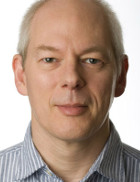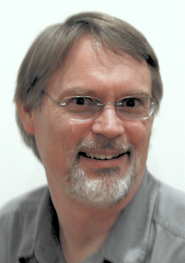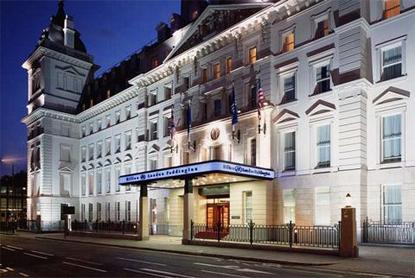Keynote Speakers

Adrian Cockcroft,
Battery Ventures

John Wilkes, Google

Ant Rowstron,
Microsoft Research
See News Report from the Event
The 6th Cloud Control Workshop is aimed to foster multidisciplinary research in cloud management, leveraging expertise in areas such as autonomic computing, control theory, distributed systems, energy management, machine learning, mathematical statistics, performance modeling, systems management, etc. By providing an understanding of the research challenges ahead and by fostering multi-disciplinary research collaborations, the ambition is to shape the future of cloud management. Expected attendees are leading researchers from any scientific discipline with potential to contribute to this multidisciplinary topic.
Workshop Format
For the first time in this workshop series, the The 6th Cloud Control Workshop is open for contributed papers. The workshop will include invited and contributed presentations as well as discussion sessions. The workshop will be held in conjunction with the 7th IEEE/ACM Conference on Utility and Cloud Computing (UCC 2014), December 8-11, 2014. Accepted papers will be published in the main UCC 2014 proceedings, published by the IEEE Computer Society, USA, and made available online through the IEEE Digital Library.
Participation
The workshop will take place on some day during the UCC 2014 conference (preliminary December 8). Workshop attendance requires UCC 2014 registration, which gives admission to all UCC 2014 activities, including all workshops.
Programme
Informal Social Event

Keynote Speakers
Adrian Cockcroft, Battery Ventures (prev. Netflix, eBay, Sun)
Cloud Native Cost Optimization (Slides)
For traditional datacenter applications capacity is a fixed upfront cost, so there is little incentive to stop using it once it’s been allocated, and it has to be over-provisioned most of the time so there is enough capacity for peak loads. When traditional application and operating practices are used in cloud deployments there are immediate benefits in speed of deployment, automation, and transparency of costs. The next step is a re-architecture of the application to be cloud native, and significant operating cost reductions can help justify the development work. Cloud native applications are dynamic and use ephemeral resources that are only charged for when they are in use. This talk will discuss best practices for cloud native development, test and production deployment architectures that turn off unused resources and take full advantage of optimizations such as reserved instances and consolidated billing.
Biography. Adrian Cockcroft has had a long career working at the leading edge of technology. He’s always been fascinated by what comes next, and he writes and speaks extensively on a range of subjects. At Battery, he advises the firm and its portfolio companies about technology issues and also assists with deal sourcing and due diligence.
Before joining Battery, Adrian helped lead Netflix’s migration to a large scale, highly available public-cloud architecture and the open sourcing of the cloud-native NetflixOSS platform. Prior to that at Netflix he managed a team working on personalization algorithms and service-oriented refactoring.
Adrian was a founding member of eBay Research Labs, developing advanced mobile applications and even building his own homebrew phone, years before iPhone and Android launched. As a distinguished engineer at Sun Microsystems he wrote the best-selling “Sun Performance and Tuning” book and was chief architect for High Performance Technical Computing.
John Wilkes, Google
A few control issues in warehouse-scale computing (Slides)
Google’s warehouse-scale computing infrastructure supports almost all of our external services. The cluster management systems that manage it allocate resources to different applications on our fleet of computers, automate software installations and hardware maintenance, provide monitoring, and do many other things. They rely on control loops at many different granularities. I’ll present an overview of some of these systems and highlight a few of the opportunities and challenges they present, driven by the scale at which we operate, an acute awareness of failures, and the drive to provide ever-better service-levels while curbing complexity.
Biography. John Wilkes has been at Google since 2008, where he is working on cluster management and service level agreements for infrastructure services. He is interested in far too many aspects of distributed systems, but a recurring theme has been technologies that allow systems to manage themselves. He received a PhD in computer science from the University of Cambridge, joined HP Labs in 1982, and was elected an HP Fellow and an ACM Fellow in 2002 for his work on storage system design. Along the way, he’s been PC chair for SOSP, FAST, EuroSys and HotCloud, and serves on the steering committees for SoCC. He’s listed an inventor on 41 US patents, and has an adjunct Professor appointment at Carnegie-Mellon University. In his spare time he continues, stubbornly, trying to learn how to blow glass.
Ant Rowstron, Microsoft Research
Rack-Scale Computers and the Cloud
In a world where we deploy cloud infrastructure by the rack, why should we be thinking of hardware units that are fractions of a rack? In this talk I will discuss some of the emerging hardware trends and try to argue for the benefits for thinking of designing cloud infrastructure at a rack-scale. I’ll talk about work we have done understanding the impact and opportunities for networking at the rack-scale, and I’ll also describe the a rack-scale cold storage unit that we have built called Pelican. Pelican an example of a rack-scale design, it is not built around the traditional design thinking, but is a design that is right-provisioned at the rack-scale, with just sufficient power, cooling, networking and compute resources to service cold storage workloads. This minimizes costs compared to traditional cloud storage infrastructure, and demonstrates the potential of rack-scale computers.
Biography. Ant Rowstron is a Principal Researcher and leads Systems and Networking Group at Microsoft Research. His research interests are broad, covering the spectrum of systems, distributed systems, storage and networking. He received an MEng degree in Computer Systems and Software Engineering in 1993 from the University of York, UK, and a DPhil degree in Computer Science in 1996 also from the University of York, UK. In 1996 he moved to the Computer Laboratory at Cambridge University, then to the Laboratory for Communications Engineering in the Engineering Department, Cambridge University. In 1999 he moved to Microsoft Research Cambridge.
Workshop Details
Paper submission
Paper submission is performed through EasyChair. Submitted papers must represent original unpublished research that is not currently under review for any other conference or journal. Papers not following these guidelines will be rejected without review and further action may be taken, including (but not limited to) notifications sent to the heads of the institutions of the authors and sponsors of the conference.
Paper format
Contributed papers should be maximum of 6 pages in length (in IEEE format). Additional pages may be purchased (in some circumstances) subject to approval by the proceedings chair.
Manuscripts may not exceed 6 letter size (8.5 x 11) pages including figures, tables and references using the IEEE format for conference proceedings (print area of 6-1/2 inches (16.51 cm) wide by 8-7/8 inches (22.51 cm) high, two-column format with a 3/8 inch (0.81 cm) space between them, single-spaced 10-point Times fully justified text).
Paper selection
Contributed papers will be selected based on reviews provided by the workshop’s Program Committee. Evaluation criteria include novelty, scientific quality, and relevance to the workshop topic. For inclusion in the workshop program and the conference proceedings, at least one author of each accepted submission must register and attend the workshop.
Important dates
Paper submissions: August 5, 2014
Notification of acceptance: No later than September 17, 2014
Early registration deadline (main UCC 2014 registration): September 29, 2014
Call for papers
The call for papers is available here.
Venue
Hilton London Paddington Hotel, London, UK
Program Committee
Organizing Committee
Erik Elmroth, Umeå University, Sweden (Workshop chair)
Maria Kihl, Lund University, Sweden (Workshop co-chair)
Martina Maggio, Lund University, Sweden (Publicity)
Per-Olov Östberg, Umeå University, Sweden (Publicity)
Cristian Klein, Umeå University, Sweden (Proceedings)
Ahmed Ali-Eldin, Umeå University, Sweden (Proceedings)
Alessandro Papadopoulos, Lund University, Sweden (Social)
Program Committee
Samuli Aalto, Aalto University, Finland
Tarek Abdelzaher, University of Illinois at Urbana Champaign, USA
Karl-Erik Årzén, Lund University, Sweden
Peter Bodik, Microsoft Research, USA
Ivona Brandic, Vienna University of Technology, Austria
David Breitgand, IBM Haifa Research Lab, Israel
Tommaso Cucinotta, Alcatel-Lucent Bell Laboratories, Ireland
Schahram Dustdar, Vienna University of Technology, Austria
Johan Eker, Ericsson Research, Sweden
Thomas Fahringer, University of Innsbruck, Austria
Anshul Gandhi, Stony Brook University, USA
Francisco Hernández-Rodriguez, Umeå University, Sweden
Geir Horn, University of Oslo, Norway
Ignacio Llorente, Universidad Complutense de Madrid, Spain
Christian Perez, INRIA, Lyon, France
Omer Rana, Cardiff University, UK
Anders Robertsson, Lund University, Sweden
Rizos Sakellariou, University of Manchester, UK
Craig Sheridan, Flexiant, UK
Rolf Stadler, Royal Institute of Technology, Sweden
Giovanni Toffetti, IBM Haifa Research Lab, Israel
Johan Tordsson, Umeå University, Sweden
Simon Tuffs, simontuffs.com, USA
Bhuvan Urgaonkar, Penn State University, USA
Vladimir Vlassov, Royal Institute of Technology, Sweden
John Wilkes, Google, USA
Ramin Yahyapour, University of Göttingen, Germany
Jianguo Yao, Shanghai Jiao Tong University, China
Xiaoyun Zhu, VMware inc., USA
Contact
For any questions or suggestions, please contact Erik Elmroth: elmroth@cs.umu.se.
Receive Information about Future Workshops
Register to our email-list by sending an e-mail to cloudcontrol-announce-request@cs.umu.se with ‘subscribe’ in either the subject or in the body. To leave the list, perform the same but write ‘unsubscribe’.



